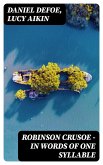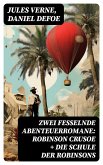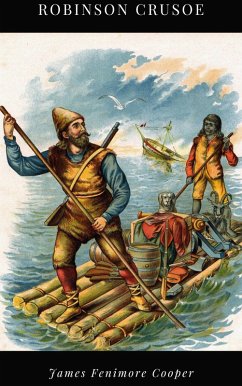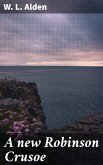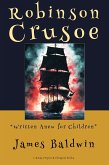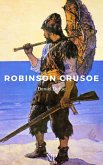In the pioneering novel "Robinson Crusoe," Daniel Defoe crafts a compelling narrative of survival, isolation, and self-discovery. The story follows the life of Crusoe, a shipwrecked sailor stranded on a deserted island, as he navigates the trials of survival while grappling with existential questions about civilization, freedom, and man's relationship with nature. Defoe's prose is characterized by a realistic style, employing vivid descriptions and an earnest voice that resonates with the reader, placing it firmly within the context of early 18th-century literature that explores themes of adventure and colonialism. Daniel Defoe was influenced by his own tumultuous experiences as a merchant and a political pamphleteer, which fostered in him a keen awareness of human resilience and autonomy. His diverse background, including his encounters with economic hardship and political strife, enabled him to infuse "Robinson Crusoe" with deeper philosophical insights regarding self-sufficiency, individualism, and the complexities of societal norms. Defoe's multifaceted life is reflected in Crusoe's journey, making the novel not just a tale of survival but a profound commentary on the human condition. I highly recommend "Robinson Crusoe" to readers who are seeking a blend of adventure and philosophical exploration. This timeless work not only engages the imagination with its vivid storytelling but also invites reflection on the human spirit's capacity to endure and adapt. Whether you are a scholar of literature or a casual reader, Defoe's masterpiece remains an essential exploration of resilience and identity.
Dieser Download kann aus rechtlichen Gründen nur mit Rechnungsadresse in A, B, BG, CY, CZ, D, DK, EW, E, FIN, F, GR, H, IRL, I, LT, L, LR, M, NL, PL, P, R, S, SLO, SK ausgeliefert werden.



